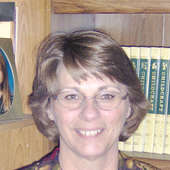Who's calling, please?
I never knew who would be on the phone when I answered it at the Nutrition Services office where I worked for several years. We served eight schools and nine kitchens, including the central bakery, and no two days were ever alike.
Kitchens and catastrophes seem to go hand-in-hand. After all, kitchens can be dangerous places. Once, a kitchen manager splashed hot grease over both of her hands. That injury ended the school year for her and the remaining scars served as a safety reminder, to her and to her staff, for the remainder of her career.
On another day, a manager called to say that one of her helpers had fallen in the dish room and although she couldn't bend her wrist, she refused medical attention, "at least until after we've finished serving lunch." Could I come and "encourage" her to go to the hospital?
I spent the rest of the day at the emergency room with her, waiting until she came out of surgery with the "external fixator" in place. (This sweetheart of a woman was so stubborn, that the very next week, she fell down her basement stairs, insisting that, of course, she could carry a basket of a laundry. When she came out of the hospital that time, she had matching "external fixators" in place, one on each wrist.)
It was close to the noon-hour. The phone rang. I took a deep breath, knowing that a call at that time of day could only mean trouble. For one of the few times in my life, I was right.
The caller, talking so fast she was tripping over her words, revealed that the deep fat fryer had ignited and they had already expended both kitchen extinguishers. Did we have another one in the office we could bring?
Now, we weren't far from that location, perhaps six blocks. But six blocks might as well be the moon when the kitchen is on fire. So, before bolting out the door, extinguisher in hand, I asked her, "Is everyone out of the building?"
"What?" she asked, incredulous. I repeated the question, advising her to pull the nearest fire alarm immediately.
When my boss and I arrived, mere moments later, each of us carrying a fire extinguisher, the students were all lined up along the sidewalks and the fire trucks were in the parking lot adjacent to the kitchen. Thankfully, their hoses remained rolled up, as the fire had been put out when the custodian arrived on the scene, an industrial-sized extinguisher in hand.
We immediately scheduled fire safety training for all of our employees and at each in-service reiterated the importance of pulling that fire alarm at the first sign of trouble.
Fire alarms usually just hang around on the walls, becoming part of the institutional decor, much as smoke detectors become nothing more than an oddly-shaped, largely ignored ceiling decoration. You don't even notice them, unless... Unless the thermostat goes out on the deep fat fryer or you turn your back on the pan of bacon grease without turning off the burner. And, other than checking the batteries twice a year on the smoke detectors, this is as it should be. After all, they are for emergency situations only.
But how often do we treat the God who loves us the same way we treat our fire alarms or our smoke detectors? How often do we willfully ignore him, his word, his Son, or the urging of his Spirit? Do we check the batteries but twice a year, showing up only for the high holy days? Is he invisible, unless catastrophe comes?
God is not a fire alarm. God is reality. He desires to be part of every day and longs to be intimately involved in every believer's life, both in the good times and the bad times. Why else would the creator of the universe and all that is in it invite us to call him "Father"?
"How great is the love the Father has lavished on us, that we should be called children of God!" 1 John 3:1 (NIV)

